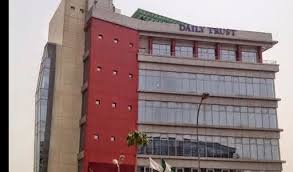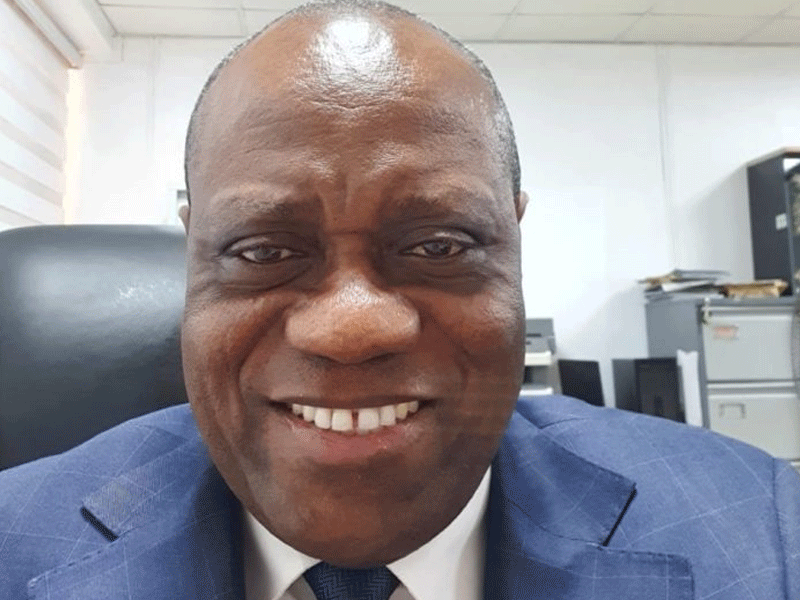Daily Trust: Official Secret, Terrorism and press freedom

The fiery wave of the army’s anger swept through Daily Trust last week, leaving behind a kind of devastation that keeps the media and the entire nation wondering if the terrifying days of military dictatorship had returned with its fury. The impact of the horror was apparent in the arrest of Uthman Abubakar, the Regional Editor in Maiduguri, Ibrahim Sawab, a reporter, and the sealing off of the newspaper’s headquarters in Abuja and regional offices in Kaduna, Lagos and Maiduguri for some hours. The siege was an ugly smoke from the decade-long but frustrating war against Boko Haram. Over the last 10 years, the terror group has continued to mutate, not just in name, but also in strategies, such that it continues to resurrect from degradation every time the military attempts to heave a sigh of relief. It was clear from the attack on Daily Trust last week that the sect has put the media and army on a head-on collision.
In the army’s fussy attempts to find legitimacy to the invasion of the newspaper, it alleged that Daily Trust violated the letters of the Official Secret Act of 1962. The Act, enacted in order to protect classified government information (including military) from being transmitted to the public, clearly states that it could be violated by anyone who “obtains, reproduces or retains any classified matter which he is not authorized on behalf of the government to obtain, reproduce or retain, as the case may be.” So, was Daily Trust on Sunday’s report on the military’s plans to retake Baga and other towns from Boko Haram control a violation of the Official Secret Act?
 From the linguistic perspective, the two operational words are the adjective ‘Official’ and the noun ‘Secret.’ The sense of ‘Official’ in this law presupposes that there is a document written by those in authority [in this case government] or its functionaries. Also, the sense of ‘Secret’ means that such document has been clearly designated as one that should not be circulated. Cambridge Dictionary, therefore defines an official secret as “a piece of information that is known only by the government and its employees.” Therefore, for an official secret to be exposed, such secret must be sourced from a classified document.
From the linguistic perspective, the two operational words are the adjective ‘Official’ and the noun ‘Secret.’ The sense of ‘Official’ in this law presupposes that there is a document written by those in authority [in this case government] or its functionaries. Also, the sense of ‘Secret’ means that such document has been clearly designated as one that should not be circulated. Cambridge Dictionary, therefore defines an official secret as “a piece of information that is known only by the government and its employees.” Therefore, for an official secret to be exposed, such secret must be sourced from a classified document.
Generally, documents that come under the category of ‘Official Secret’ are properly marked as follows: ‘confidential,’ for materials that could reasonably be expected to damage national security; ‘secret’ used to shield materials which, if released, could cause serious damage to national security, and ‘top secret’, the highest level of classification, that, if disclosed, could cause exceptionally grave damage to national security.
From the foregoing, for anyone to violate the Official Secret Act, he should be caught in possession of a document properly classified as any of the three above, which could contain information that could cause an implosion of the country. A contemporary example of journalists caught in possession of ‘official secret’ is the case of two Reuter journalists, Wa Lone and Kyaw Soe Oo, detained since December 12, 2017. The journalists who were investigating extrajudicial killing of Rohingya by Myanmar army were arrested when they honoured police invitation. At the meeting the police handed some official documents to them, and instantly arrested the journalists for allegedly violating that country’s Official Secret Act for being in possession of the official document. The case is ongoing in the court of law.
In the story that earned Daily Trust the wrath of the army, there was no reference to any official document, not to talk of a ‘confidential,’ ‘secret,’ or ‘top secret’ ones. Every official document bears a reference number, but Daily Trust only quoted “credible sources” talking about a “major operation being underway,” but “can’t divulge the details to you.” The ‘credible source,’ did not refer to any ‘official secret document,’ therefore, the information he volunteered to journalists was in the realm of conjecture. Facts are supported with evidence – human or documentary.
The spirit of the story is found in its context – the debilitating and confounding attacks by terrorists on communities and the military in Borno State. The Islamic States of West African Province (ISWAP) had seized some cities and overwhelmed some local governments with its murderous campaigns in the run-up to 2019 elections, thereby puncturing government’s three-year achievement of degrading Boko Haram. Most destabilizing was the retake of Baga, a major town, and other islands on the shore of the Lake Chad region. Ordinarily, the story by Daily Trust should have a morale boosting effect for both the military and Borno people who are under siege. War-weary soldiers in Borno should sense some relief on learning that more troops would be deployed to the battle front, while the hopes of the people of reclaiming their homes and living their normal lives should be enhanced on hearing the news that more soldiers were being deployed to fight ISWAP.
The army anchored its accusation on the supposition that the reported movement of troops to confront Boko Haram was the provision of intelligence information to the army’s enemies, and that the sect could counter the military’s planned operations. But it is not unusual for the media to announce the deployment of troops, or withdrawal of soldiers, to and from battle fronts. In 2001, after the terror attacks in the US, troops movements to Afghanistan and Iraq were widely reported in the media. At present, the withdrawal of US troops from Islamic States in Iraq and Syria (ISIS) infested locations, especially in Syria, has been announced and widely publicized by the media across the world. There are numerous contemporary examples that prove that the announcement of troops’ deployment cannot be considered as a revelation of classified official information. In January 2017, the deployment of Nigerian troops to The Gambia to tackle former President Yahya Jammeh, who did not want to relinquish power after losing the presidential election, was announced in the media before soldiers were sent to The Gambia. In March 2018, the airlifting of Nigerian soldiers and naval officers on Economic Community of West African States (ECOWAS) mission was announced in the media.
Also, this line of thinking that the media report was a source of intelligence for Boko Haram is too simplistic. One of the strategies of terror groups, including Al-Qaeda, ISIS, A-Shabaab, The Taliban, etc, is the infiltration of security and intelligence networks of countries [or communities] in which they operate. Like every criminal group, terrorist organisations are not unaware that they would fail if they do not have collaborators in the security sector. Numerous stories that point to the fact that Boko Haram may have intelligence sources in the security sector have been reported. For instance, in February 2018, it was reported that Abubakar Shekau escaped from his hideout before what was termed as a well-coordinated assault on his location in Sambisa Forest was executed. His escape left tongues wagging in the security circle. Also,those rescued from Sambisa forest have told stories of how Boko Haram commanders received information of impending military attacks and relocated them before such assaults. Who would have forewarned the sect before such attacks? If the Army had said Boko Haram lusts after publicity and so a front page story on their activities would cause terrorists to dance and jubilate, it would have been plausible. But to raid a newspaper house on the excuse that a report let out security details could cause Boko Haram commanders to laugh at us all.
Perhaps, the objective of the Army was to intimidate and crush the investigative, interpretative and analytical reporting spirit of Daily Trust journalists. In the last few weeks, Daily Trust has engaged in solutions-based reporting on the security situation in the country, speaking to eye witnesses, those at Ground Zero in the North-East, and experts. The series of publications that have arisen from the enterprise may have created discomfort in the security circle. But critical reporting is meant to set those in authority thinking, not to discredit them.
The invasion of Daily Trust offices and arrest of its journalists is a naked violation of the freedom of the press, which should not be 20 years after the exit of the military from political power in Nigeria. The essence of critical journalism is to provide government with alternative viewpoints; it is meant to educate those shielded in the high walls of Government Houses on the reality on ground, how the action and inaction of government affect the masses. It would amount to disservice to the nation if the media publish only press statements on the military’s exploits against Boko Haram without capturing the prevailing condition of those who live in the North East. Section 22 of the Nigerian Constitution says expressly: “The press, radio, television and other agencies of the mass media shall at all times be free to… uphold the responsibility and accountability of the government to the people.” Therefore, the media should carry out their assignment in the interest of the public, not just few government officials who lust after propaganda.
First published in Daily Trust on Sunday, January 14, 2019
The Insight Report
Nigeria Coverage



